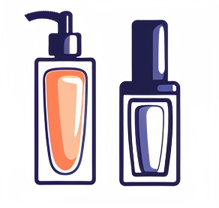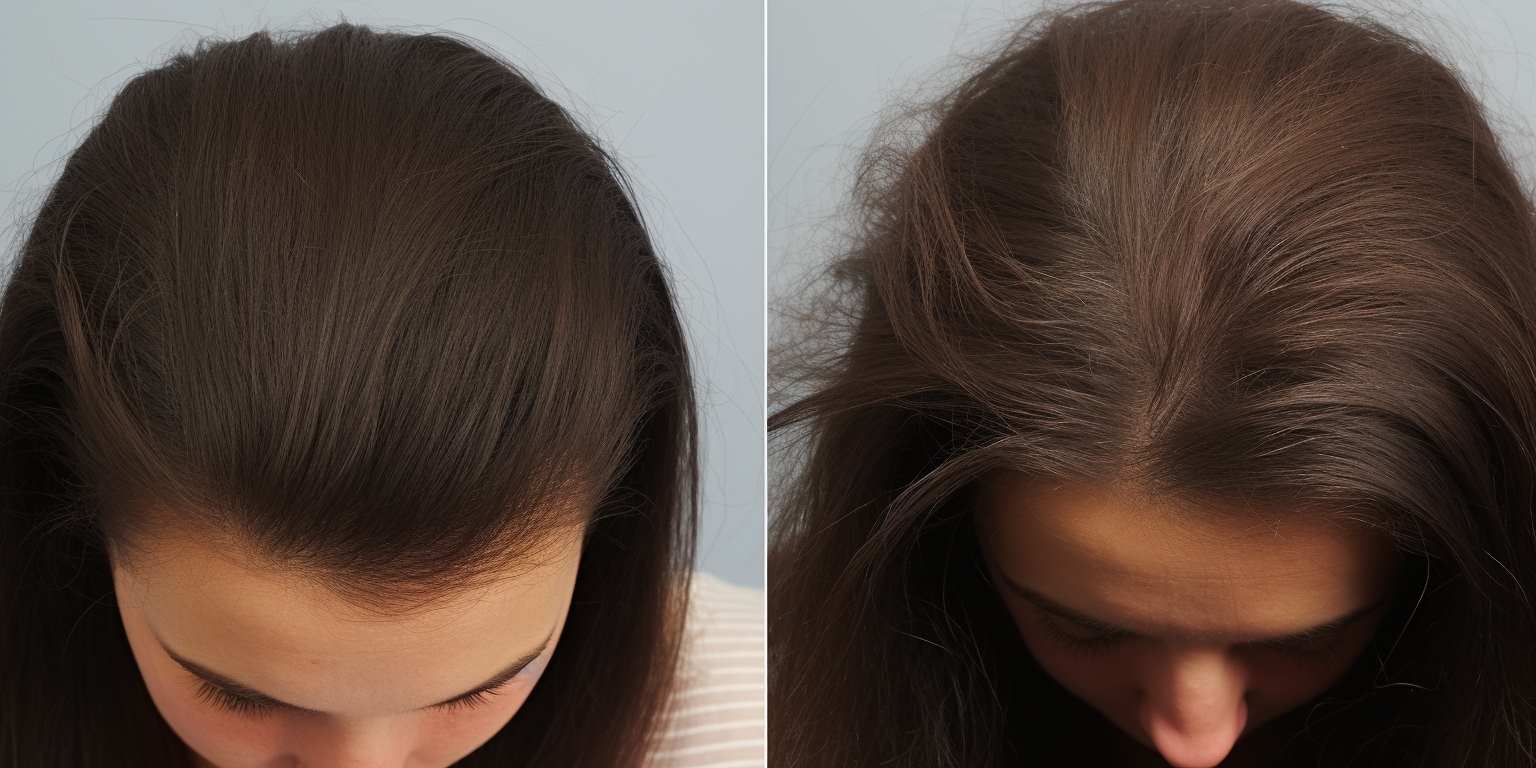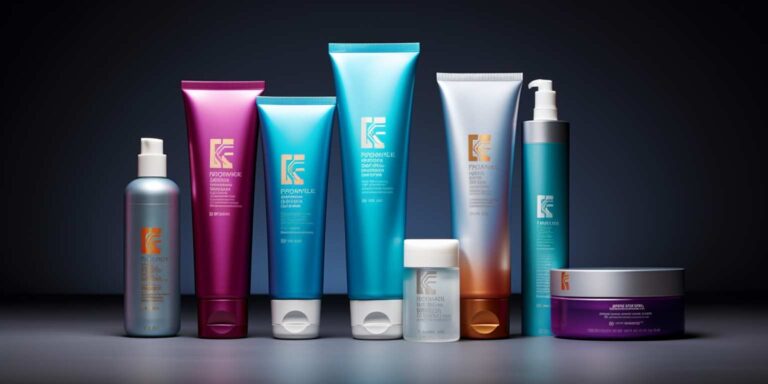The ultimate guide to shampoo for scalp buildup
Choosing the ultimate shampoo for scalp buildup involves understanding your scalp type, the ingredients in the shampoo, and how it addresses the specific issues causing the buildup. Here’s a comprehensive guide to help you navigate through the myriad of options:
| Scalp Type | Recommended Shampoo |
| Dry Scalp | A moisturizing shampoo with ingredients like aloe vera, coconut oil, and glycerin can help hydrate the scalp while cleansing gently. |
| Oily Scalp | Look for a clarifying shampoo containing salicylic acid or tea tree oil to remove excess oil and buildup without stripping the scalp. |
| Sensitive Scalp | Opt for a hypoallergenic shampoo free from harsh chemicals like sulfates and parabens to soothe irritation and reduce inflammation. |
Regardless of your scalp type, it’s essential to pay attention to the ingredients in the shampoo. Avoid products containing silicones, heavy waxes, and artificial fragrances, as these can exacerbate buildup and weigh down your hair.
Instead, look for shampoos formulated with gentle cleansers such as coconut-derived surfactants or plant-based extracts like witch hazel and rosemary, which help remove buildup while nourishing the scalp.
For those dealing with stubborn scalp issues, incorporating a scalp scrub into your routine once a week can provide deeper exfoliation, removing dead skin cells and unclogging hair follicles. Just be sure not to overdo it, as excessive scrubbing can lead to irritation.
Remember, consistency is key when it comes to addressing scalp buildup. Be patient and give your chosen shampoo time to work its magic. And always follow up with a conditioner to keep your hair hydrated and manageable.
Identifying scalp buildup symptoms
Scalp buildup, also known as sebum buildup, is a common condition that occurs when excess oil, dead skin cells, and product residue accumulate on the scalp’s surface. This buildup can lead to various symptoms that indicate an unhealthy scalp environment. Identifying scalp buildup symptoms is crucial for proper treatment and maintenance of scalp health.
One of the most noticeable symptoms of scalp buildup is itchiness. When excess oil and debris accumulate on the scalp, they can cause irritation and itching sensation. Individuals experiencing persistent itchiness should examine their scalp for signs of buildup.
Flakiness is another common symptom of scalp buildup. Dead skin cells mixed with oil and product residue can form flakes, resembling dandruff. These flakes may be visible on the scalp, especially when scratching or brushing the hair.
Greasy or oily scalp is a telltale sign of sebum buildup. Excess oil production, combined with accumulation from hair products, can leave the scalp looking and feeling greasy even shortly after washing.
Unpleasant odor emanating from the scalp is often associated with buildup. Bacteria thrive in the warm, moist environment created by excess oil and dead skin cells, leading to an unpleasant smell. This odor may become more noticeable over time if the buildup is not addressed.
| Symptom | Description |
|---|---|
| Itchiness | Caused by irritation from excess oil and debris |
| Flakiness | Visible flakes resembling dandruff |
| Greasy or oily scalp | Excess oil production and product residue |
| Unpleasant odor | Result of bacterial growth on the scalp |
Additionally, scalp tenderness may occur in some individuals with severe buildup. The scalp may feel tender or sore to the touch due to inflammation caused by the accumulation of oil, debris, and bacteria.
Visible residue on the scalp or hair is another indicator of buildup. White or yellowish residue may be visible on the scalp or hair strands, particularly near the roots, indicating an excessive buildup of sebum and other substances.
Recognizing these symptoms of scalp buildup is essential for implementing an appropriate hair care routine. Regular cleansing with clarifying shampoos can help remove excess oil and product residue, while scalp exfoliation can help slough off dead skin cells and prevent further buildup.
Furthermore, adopting healthy lifestyle habits such as maintaining a balanced diet, staying hydrated, and avoiding excessive use of hair products can promote scalp health and reduce the risk of buildup.
Choosing the right shampoo for scalp health
When it comes to choosing the right shampoo for scalp health, it’s essential to understand that not all shampoos are created equal. Your scalp is the foundation for healthy hair, and using the appropriate shampoo can make a significant difference in maintaining its health and vitality.
Scalp type plays a crucial role in determining the ideal shampoo for you. Whether you have a dry, oily, normal, or sensitive scalp, there are specific formulations designed to address your unique needs. Understanding your scalp type will help you narrow down your options and select a shampoo that caters to its requirements.
For those with a dry scalp, it’s essential to look for hydrating and nourishing shampoos. These formulas typically contain moisturizing ingredients such as aloe vera, shea butter, or argan oil to help replenish moisture and soothe irritation.
If you have an oily scalp, you’ll want to opt for clarifying shampoos that effectively remove excess oil and buildup without stripping the scalp of its natural oils. Look for ingredients like tea tree oil, salicylic acid, or charcoal, known for their purifying properties.
Individuals with a normal scalp have the flexibility to choose from a wide range of shampoos. However, it’s still essential to pay attention to ingredients and avoid harsh sulfates and parabens that can cause dryness or irritation.
For those with sensitive scalps, it’s crucial to select gentle and fragrance-free formulas to minimize the risk of allergic reactions or irritation. Look for hypoallergenic shampoos that are free from artificial fragrances, dyes, and harsh chemicals.
Ingredients are key when it comes to choosing the right shampoo for scalp health. Natural ingredients like aloe vera, coconut oil, and jojoba oil are known for their soothing and moisturizing properties, while essential oils like lavender or rosemary can help promote scalp health.
When selecting a shampoo, consider any specific concerns you may have, such as dandruff, itchiness, or scalp inflammation. Many shampoos are formulated to target these issues and can provide relief with regular use.
Lastly, pay attention to product labels and reviews to ensure you’re choosing a quality shampoo from a trusted brand. Look for certifications like organic or cruelty-free if those are important to you.
Home remedies for scalp buildup
Scalp buildup, that annoying residue that can leave your hair feeling greasy and heavy, is a common issue that many people face. Whether it’s from product buildup, natural oils, or even pollution, dealing with scalp buildup can be frustrating. Luckily, there are several home remedies you can try to combat this problem and restore balance to your scalp.
Vinegar Rinse: Vinegar is a powerhouse when it comes to breaking down buildup and restoring pH balance to the scalp. Mix equal parts of apple cider vinegar and water, then pour the mixture over your scalp after shampooing. Massage it in for a few minutes before rinsing thoroughly. The acidity of the vinegar helps to dissolve buildup while also soothing the scalp.
Baking Soda Scrub: Baking soda is another effective remedy for scalp buildup. Create a paste by mixing baking soda with water, then gently massage it into your scalp. The gentle exfoliation action of baking soda helps to remove dead skin cells and excess oils, leaving your scalp feeling clean and refreshed. Be sure to rinse thoroughly to avoid any residue.
Tea Tree Oil Treatment: Tea tree oil is renowned for its antimicrobial properties, making it an excellent choice for treating scalp issues. Mix a few drops of tea tree oil with a carrier oil like coconut or olive oil, then massage it into your scalp. Leave it on for at least 30 minutes before shampooing as usual. Not only does tea tree oil help to reduce buildup, but it also has a cooling sensation that can alleviate itching and irritation.
Aloe Vera Gel: Aloe vera is not only soothing for the skin but also beneficial for the scalp. Apply fresh aloe vera gel directly to your scalp and let it sit for about 20 minutes before rinsing. Aloe vera helps to hydrate the scalp while also reducing inflammation, making it an ideal remedy for scalp buildup caused by dryness or irritation.
Lemon Juice Rinse: Lemon juice is acidic and can help to dissolve buildup while also adding shine to your hair. Mix the juice of one lemon with water and pour it over your scalp, massaging gently for a few minutes before rinsing. The citric acid in lemon juice helps to break down oils and residue, leaving your scalp feeling clean and refreshed.
Exfoliating Scalp Scrub: A homemade scalp scrub can effectively remove buildup and stimulate circulation to the scalp. Mix brown sugar or sea salt with a carrier oil like olive or jojoba oil to create a scrub. Gently massage the scrub into your scalp using circular motions, then rinse thoroughly. This DIY treatment helps to slough off dead skin cells and debris, leaving your scalp feeling rejuvenated.
How often should you use scalp buildup shampoo
When it comes to maintaining a healthy scalp, finding the right balance of cleansing and nourishing is essential. Scalp buildup shampoo can be a helpful tool in your hair care routine, but knowing how often to use it can be a bit tricky.
Scalp buildup occurs when excess oil, product residue, and dead skin cells accumulate on the scalp, leading to irritation, itchiness, and even dandruff. Using a scalp buildup shampoo can effectively remove these impurities, promoting a healthier scalp environment.
However, it’s important not to overdo it. Using a scalp buildup shampoo too frequently can strip the scalp of its natural oils, leading to dryness and potential damage to the hair follicles.
The frequency of scalp buildup shampoo use depends on several factors, including your hair type, scalp condition, and lifestyle. For those with oily scalps or who use a lot of styling products, using a scalp buildup shampoo once or twice a week may be necessary to keep the scalp clean and balanced.
On the other hand, if you have a dry scalp or sensitive skin, using a scalp buildup shampoo too frequently can exacerbate these issues. In this case, it’s best to use it less often, perhaps once every two weeks or even once a month.
It’s also important to pay attention to how your scalp reacts after using a scalp buildup shampoo. If you notice any excessive dryness, irritation, or flakiness, you may be using it too often or need to switch to a gentler formula.
Ultimately, the key is to listen to your scalp. If it feels clean, balanced, and free of buildup, you’re probably using the scalp buildup shampoo often enough. If you’re unsure, start with a conservative approach and adjust as needed based on your scalp’s response.
| Frequency | Hair/Scalp Type |
|---|---|
| Once or twice a week | Oily scalp, heavy product use |
| Once every two weeks to once a month | Dry scalp, sensitive skin |
The importance of scalp care routine
Scalp care routine is often overlooked in many individuals’ beauty regimens, yet its significance cannot be overstated. Your scalp is the foundation for healthy hair growth, making it imperative to prioritize its care. Let’s delve into the importance of a dedicated scalp care routine and why it should be an integral part of your grooming regimen.
First and foremost, a healthy scalp fosters optimal hair growth. Just as fertile soil is essential for a flourishing garden, a nourished scalp provides the ideal environment for hair follicles to thrive. Neglecting scalp health can lead to issues such as dandruff, dryness, itchiness, and even hair loss. By implementing a consistent scalp care routine, you can address these concerns and promote stronger, more resilient hair.
One of the primary benefits of a scalp care routine is the removal of buildup and impurities. Throughout the day, sweat, oils, styling products, and environmental pollutants accumulate on the scalp, potentially clogging follicles and hindering hair growth. By cleansing the scalp regularly with a gentle shampoo formulated for your specific needs, you can effectively remove debris and maintain a clean, healthy environment.
Moreover, a targeted scalp care regimen can help balance oil production. Excessive oiliness can contribute to greasy hair and scalp discomfort, while insufficient oil production may lead to dryness and flakiness. By using products designed to regulate sebum production, such as clarifying shampoos or scalp toners, you can achieve a harmonious balance and promote scalp health and vitality.
| Key Benefits of Scalp Care Routine: |
| – Promotes optimal hair growth |
| – Removes buildup and impurities |
| – Balances oil production |
In addition to cleansing, a comprehensive scalp care routine should incorporate exfoliation to slough off dead skin cells and stimulate circulation. This can be achieved through the use of scalp scrubs or massaging techniques, which not only enhance the efficacy of cleansing products but also promote relaxation and stress relief.
Furthermore, nourishing the scalp with conditioning treatments is essential for maintaining its health and vitality. Just as you would moisturize your skin to keep it soft and supple, providing your scalp with hydration and nutrients is crucial for preventing dryness and promoting overall well-being.
Preventing scalp buildup: tips and tricks
Scalp buildup can be a pesky issue, causing discomfort and affecting the overall health of your hair. Understanding how to prevent this buildup is crucial for maintaining a clean and healthy scalp. Here are some tips and tricks to keep your scalp free from unwanted residue:
Firstly, it’s essential to choose the right shampoo for your hair type. Using a gentle, sulfate-free shampoo can help prevent the accumulation of product residues on your scalp. Look for shampoos specifically designed to clarify and remove buildup.
Regular cleansing is key. While it’s important not to overwash your hair, ensuring that you cleanse your scalp regularly can prevent the buildup of oils, dead skin cells, and styling products. Consider washing your hair 2-3 times a week to maintain a healthy balance.
Exfoliation is not just for your skin—it’s beneficial for your scalp too. Use a scalp scrub or create your own by mixing a tablespoon of sugar with your shampoo. Gently massage the mixture into your scalp to remove dead skin cells and promote a cleaner, healthier scalp.
Conditioning is crucial but be mindful of how much conditioner you apply to your scalp. Conditioners are meant for the lengths and ends of your hair, not the scalp. Applying conditioner directly to the scalp can contribute to buildup. Focus on the mid-length to ends of your hair when conditioning.
Avoid heavy styling products that can lead to product buildup. If you regularly use styling gels, hairsprays, or waxes, be sure to cleanse your hair thoroughly to prevent these products from accumulating on your scalp.
Scalp massage isn’t just a relaxing activity—it can also help improve blood circulation and prevent buildup. Gently massage your scalp while shampooing to dislodge any debris and promote a healthier scalp environment.
Natural remedies can be effective in preventing scalp buildup. Apple cider vinegar, known for its clarifying properties, can be diluted with water and used as a final rinse after shampooing. This helps remove residue and leaves your scalp feeling refreshed.
Adjust your diet to promote scalp health. A balanced diet rich in vitamins and minerals contributes to overall hair and scalp health. Ensure you’re getting enough nutrients like vitamins A and E, zinc, and omega-3 fatty acids to support a healthy scalp.







